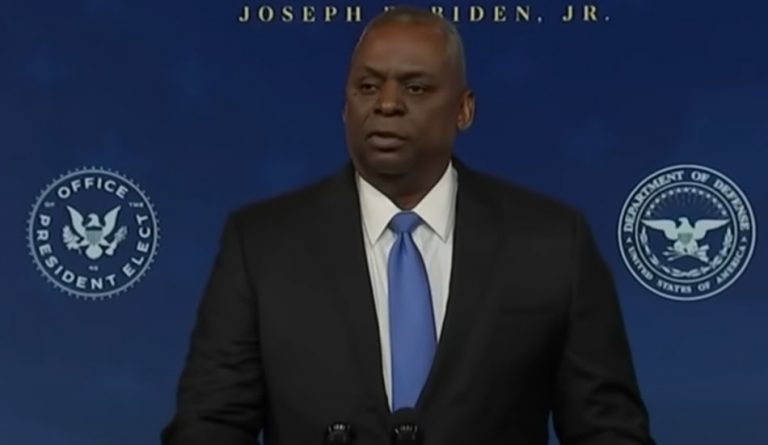Joe Biden recently announced his secretary of defense candidate — retired four-star Army General Lloyd Austin III. Austin has experience overseeing the U.S. Central Command. If he is appointed, Austin will become the first African American to be Pentagon chief. However, there is significant skepticism that Austin is the right fit for the job.
Austin has extensive experience in regions like Central Asia, South Asia, and the Middle East. But Austin lacks experience in the Indo-Pacific region, including China, the quickly emerging top military threat for the U.S.
Another major issue is that Austin’s military experience comes from the Army, the wrong profile needed to counter threats from communist China. For example, Austin’s experience in Army’s anti-terror operations in the Middle East may not translate to strong defense against China. The Middle East is also an area where the U.S. has been decreasing its presence.
“The focus of the Pentagon over the next several years will most likely be on the Indo-Pacific and on China’s rise. Gen. Austin’s CENTCOM experience will need to be augmented by someone who knows China and East Asia better,” said Husain Haqqani, Pakistan’s former ambassador to the U.S. and director of South and Central Asia at the Washington think tank Hudson Institute.
The U.S. actually needs someone well-versed in naval tactics. General Mark A. Milley, the Chairman of the Joint Chiefs of Staff, said in a statement recently. He noted that the fundamental ability of the U.S. to project power against communist China will be through naval force, air force, and space force, none of which Austin has adequate experience.
Forgetting about China
Success
You are now signed up for our newsletter
Success
Check your email to complete sign up
While announcing his secretary of defense, Joe Biden rattled America’s Asian allies when he omitted discussing China.
“Biden’s failure to even mention China, the Indo-Pacific, or the strategic challenges faced by the United States and its allies and partners sends a disturbing signal to the region about the president’s priorities… It’s like endorsing a secretary of defense during the Cold War and not mentioning Europe or the Soviet Union,” Ashley Townshend, director of foreign policy and defense at the U.S. Studies Centre in Australia, said to Japan Times.
Tetsuo Kotani, a regional security expert and professor at Meikai University, notes that Biden’s foreign policy has always mentioned U.S.-China competition only in terms of technology and economy, not in terms of military power. The omission highlights that Biden either does not understand or underestimates the threat posed by China. Picking Austin, someone who has no experience with China and the Indo-Pacific, further reflects Biden’s flawed understanding of Beijing.
In an essay on Medium, Biden explains why he chose Austin. Republican senator Josh Hawley criticized the essay on Twitter, saying that it also doesn’t mention anything about China.
In 2017, the Trump administration’s National Security Strategy named China the United States’ main strategic competitor. In the following years, the U.S. has taken an increasingly clear stand on the Chinese Communist Party (CCP) and its dictatorial Marxist-Leninist system — including both its abuses of the Chinese people and the international threat it poses to free countries.
Another wavier
Austin faces another challenge — a law mandating that the secretary of defense be held by an officer who has been retired from the military for seven years. Austin only retired four years ago. To become Pentagon chief, Austin needs a congressional waiver.
Such a waiver has only been granted two times in American history, with the second time happening recently under the Trump presidency with retired Marine General James Mattis. Democrats had resolutely opposed this waiver. Supporting this waiver now during Biden’s presidency would be an ethical problem for many Democrats.

“I, like many other senators, have real reservations about giving another waiver under federal law for a recently retired general to become secretary of defense… I can tell you that senators across the spectrum from liberal Democrats to conservative Republicans are opposed to doing that again… Many senators believe that while General Austin has served our country with distinction, and he might be a suitable nomination for many other Cabinet positions, that it’s time to restore proper civil military balance to the Pentagon. Granting another waiver might put that at risk,” Senator Tom Cotton said to Fox News.
Four Senate Democrats have already declared that they will vote against the waiver for Austin. This includes senators Elizabeth Warren, Tammy Duckworth, Jon Tester, and Richard Blumenthal. For Austin to obtain a waiver, Biden would then need support from Republican senators.
Follow us on Twitter or subscribe to our weekly email
















